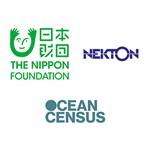OXFORD, United Kingdom, Oct. 29, 2025 (GLOBE NEWSWIRE) -- Thirty previously unknown deep-sea species, including a carnivorous “death-ball” sponge, have been confirmed from one of the most remote parts of the planet by The Nippon Foundation–Nekton Ocean Census and collaborators. The discoveries follow two 2025 research cruises with Schmidt Ocean Institute and were verified at the Southern Ocean Species Discovery Workshop hosted by Universidad de Magallanes, Punta Arenas, Chile (August 2025).
A Media Snippet accompanying this announcement is available by clicking on this link.
With Halloween on the horizon, a standout discovery is a new predatory sponge (Chondrocladia sp. nov.). Its spherical form is covered in tiny hooks that trap prey, a clear contrast to the gentle, passive, filter-feeding undertaken by most sponges. ‘Zombie worms’ (Osedax sp.) were also observed. Although not thought to be new to science, these worms have no mouth or gut and rely on symbiotic bacteria to break down fats inside the bones of whales and other large vertebrates.
“Accelerating species discovery is not a scientific luxury, it is essential for public good,” said Mr Mitsuyuki Unno, Executive Director of The Nippon Foundation, who leads Ocean Census with the Nekton Foundation. “Ocean Census is a program with the goal to reveal the unknowns of our world. Through its expeditions, we have seen another groundbreaking species discovery that benefits the world’s scientists, policymakers and communities.”
Searching for New Species in the South Sandwich Islands was an Ocean Census Flagship expedition onboard Schmidt Ocean Institute’s R/V Falkor (too) using ROV SuBastian to survey volcanic calderas, the South Sandwich Trench, and seafloor habitats around Montagu and Saunders Islands. The team collected nearly 2,000 specimens across 14 animal groups (phyla), alongside thousands of high-definition images and hours of video. Highlights include new hydrothermal vents at ~700 m with chemosynthetic communities, vibrant coral gardens, evidence of explosive undersea volcanism, and the first confirmed footage of a juvenile colossal squid.
In addition, three researchers from the Ocean Census Science Network supported an expedition onboard R/V Falkor (too) in the Bellingshausen Sea. When iceberg A-84 (≈510 km²) calved from the George VI Ice Shelf in January 2025, the ship pivoted to the newly exposed seabed, becoming the first to investigate an area previously sealed beneath ~150 metres of ice.
“The Southern Ocean remains profoundly under-sampled. To date, we have only assessed under 30% of the samples collected from this expedition, so confirming 30 new species already shows how much biodiversity is still undocumented,” said Dr Michelle Taylor, Head of Science at The Nippon Foundation-Nekton Ocean Census, “By coupling expeditions with species discovery workshops, we compress what often takes more than a decade into a faster pathway while maintaining scientific rigour by having world experts involved.”
The Southern Ocean expeditions also revealed new armoured and iridescent scale worms (Eulagisca sp. nov.), previously unknown species of sea stars (Brisingidae, Benthopectinidae and Paxillosidae); new crustaceans, including isopods and amphipods, with material under review that may represent a new amphipod family; and rare gastropods and bivalves adapted to volcanic and hydrothermal-influenced habitats. Additional possible new species, among them black corals and a potential sea-pen genus, are undergoing expert assessment.
“Advanced tools — from precise seafloor mapping to high-definition ROV imagery — allow us to explore and gather data from places never seen before by humans,” said Dr Jyotika Virmani, Executive Director, Schmidt Ocean Institute. “The goal we share with Ocean Census to accelerate discoveries has resulted in the first confirmed sighting of a juvenile colossal squid and new species, and exemplifies what becomes possible when technology, ship time, and a global science network work as one.”
At the Southern Ocean Species Discovery Workshop, an international team of taxonomists fast-tracked species verification by triaging, imaging and comparing specimens on site, using targeted DNA barcoding where needed. This ocean-to-lab model is a newer, faster, and more collaborative approach to species discovery for the global community, addressing a common reality in taxonomy—limited funding and capacity mean samples can sit unprocessed for years.
“This is exactly why the Ocean Census exists—accelerating the discovery of ocean life and making it openly available,” added Dr Taylor, who is also a world-leading expert in deep-sea corals and senior lecturer at University of Essex. “Each confirmed species is a building block for conservation, biodiversity studies, and untold future scientific endeavours.”
Polar deep-sea ecosystems remain profoundly under-sampled yet are central to understanding evolution, biogeography and resilience in our rapidly changing climate. The Ocean Census’ accelerated species discovery model generates open, high-quality biodiversity evidence to support taxonomy, conservation planning, and future research. All confirmed records meeting the Ocean Census ‘Discovered’ criteria will be curated in the open access Ocean Census Biodiversity Data Platform.
Editors Notes
Media can access materials in the press kit here, including FAQs, Fact Sheet, and spokesperson bios.
Editorial Guidelines
- We kindly request that editors and journalists use the full programme name “The Nippon Foundation-Nekton Ocean Census” the first time it is referenced and/or for quotes and photo captions. Additionally, if editorial policy allows, we would be grateful for a brief acknowledgement of our co-founders (The Nippon Foundation and Nekton Foundation), without whom our programme would not be possible.
- Images must be accompanied by the appropriated credits provided within the press kit and linked here.
Press Contacts
- Kira Coley, Head of Communications, The Nippon Foundation-Nekton Ocean Census
- press@oceancensus.org
- +44 (0)7734591811
Interview Opportunities
- Executives:
- Mitsuyuki Unno, Executive Director of The Nippon Foundation
- Oliver Steeds, Director and Co-Founder, The Nippon Foundation-Nekton Ocean Census
- Dr Jyotika Virmani, Executive Director, Schmidt Ocean Institute.
- The South Sandwich Island Expedition
- Dr Michelle Taylor, Head of Science, The Nippon Foundation-Nekton Ocean Census
- Joe Sharman, Head of Expedition, The Nippon Foundation-Nekton Ocean Census
- Southern Ocean Species Discovery Workshop
- Dr Verity Nye, Science Manager, The Nippon Foundation-Nekton Ocean Census
- Dr Verity Nye, Science Manager, The Nippon Foundation-Nekton Ocean Census
Definitions
- Discovered – A species is classified as ‘discovered’ when experts determine—using morphological characteristics and, if necessary, genetic sequencing—that it is new to science. All discoveries are published open access in the Ocean Census Biodiversity Data Platform with biological specimens curated in national taxonomy collections.
- Described – A species is considered ‘described’ once its classification is published in a peer-reviewed scientific journal, with an official scientific name assigned and a holotype deposited in a national museum or taxonomic repository. This process typically takes 13.5 years, but the Ocean Census is working to significantly reduce this timeframe.
About the Organisations
The Nippon Foundation-Nekton Ocean Census
The Nippon Foundation-Nekton Ocean Census is the world’s largest alliance dedicated to accelerating the discovery of ocean life. Established by The Nippon Foundation and Nekton in 2023, the Ocean Census brings together hundreds of scientists and institutions across the globe to explore, document, and share the diversity of marine species at unprecedented speed and scale.
By placing taxonomy at the heart of its mission, the Ocean Census connects experts worldwide — especially in underrepresented regions — with emerging technologies, data platforms, and collaborative expeditions. All discoveries feed into the open-access Biodiversity Data Platform, ensuring that knowledge is freely available to scientists, policymakers, conservationists, and the public.
The Ocean Census exists to discover ocean life and share the knowledge that fuels science, policy, and innovation — knowledge that helps humanity better understand, connect with, and care for the planet, ultimately sustaining all life on Earth.
The Nippon Foundation
The Nippon Foundation is Japan’s largest philanthropic foundation. Since 1962, it has supported projects in education, healthcare, food security, and ocean conservation. The Foundation plays a pivotal role in advancing marine science in Japan and globally, through partnerships with leading scientific institutions.
Nekton
Nekton is an independent, not-for-profit research institute and UK registered charity. Nekton works to accelerate the scientific exploration and conservation of the ocean through expeditions, applied research, storytelling, and knowledge exchange. Nekton co-develops its programmes with the Nekton Network—an alliance of scientists, governments, businesses, philanthropy, and civil society partners—working together to build a more valued ocean. www.nektonmission.org
Schmidt Ocean Institute
Schmidt Ocean Institute was established in 2009 by Eric and Wendy Schmidt to catalyze the discoveries needed to understand our ocean, sustain life, and ensure the health of our planet through the pursuit of impactful scientific research and intelligent observation, technological advancement, open sharing of information, and public engagement, all at the highest levels of international excellence. For more information, visit www.schmidtocean.org.
A photo accompanying this announcement is available at https://www.globenewswire.com/NewsRoom/AttachmentNg/1d66805f-a247-43ba-9874-c9fb40424d5a








